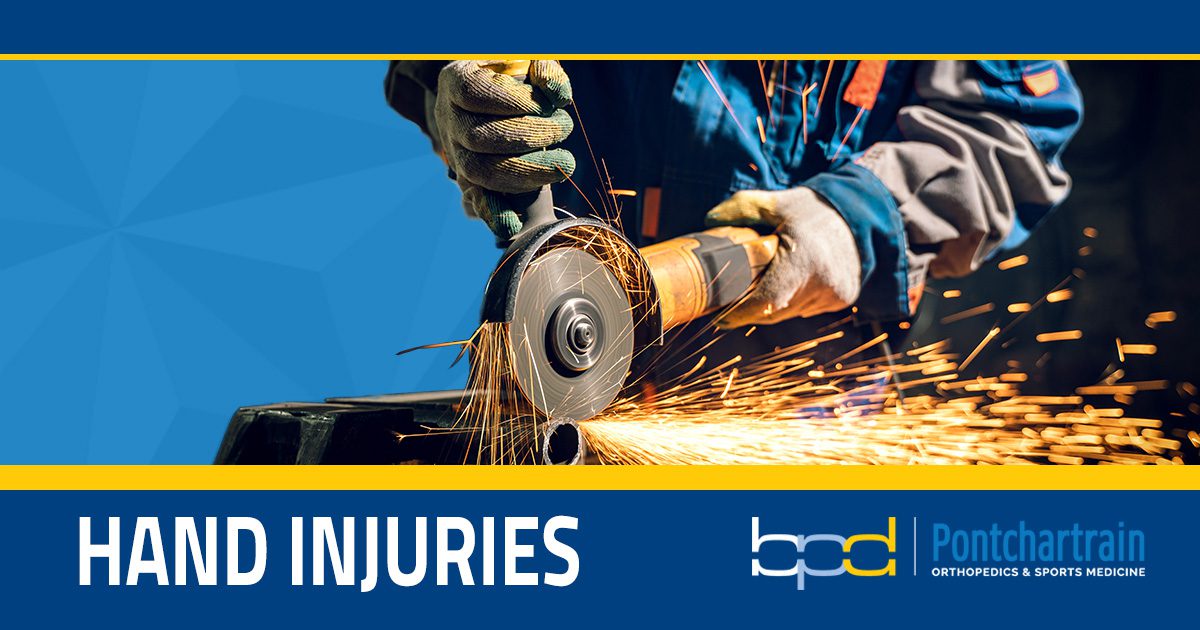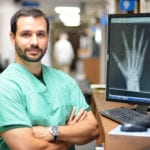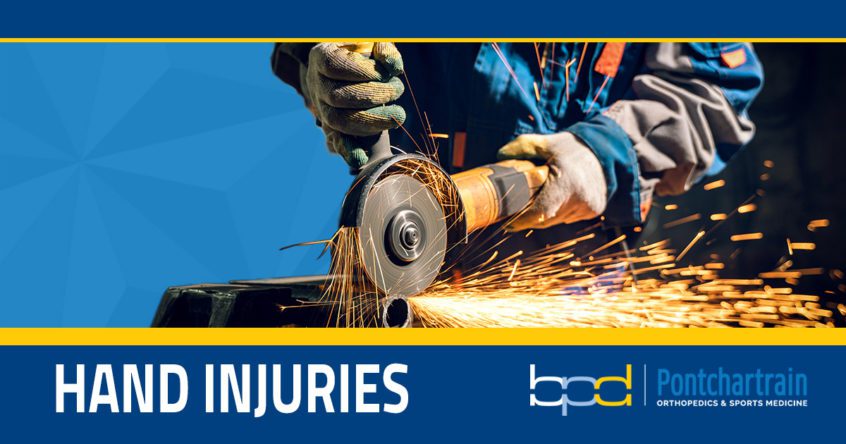
Our hands are one of the most important parts of our bodies. When someone injures their hands, they might experience life-altering routine changes. Some hand injuries, if left untreated, can lead to serious complications, like failure to heal, chronic discomfort, or lack of movement. But how do you know when an injury to the hand is serious enough to warrant a visit to a hand specialist? We asked Dr. Donnelly which types of severe injuries he sees most frequently. Today, we’ll talk about some of those injuries, as well as how to know when it’s time to talk to a hand specialist.
Jobs and activities that can result in injuries
Hand injuries send more than 1 million workers to the emergency room annually in the United States.Centers for Disease Control and Prevention
Workers in some professions are more likely to sustain a severe hand injury than others. According to the CDC’s National Center for Injury Prevention and Control, hand injuries send more than 1 million workers to the emergency room annually in the United States. People in high-risk occupations often use their hands in close proximity to heavy equipment. A few of these professions include:
Even with the best training, safety equipment, and experience, accidents can happen. Those who work in one of these occupations or a similar job should know how to recognize the types of injuries to the hand that might require the attention of a specialist.
Types of severe hand injuries
Tendon and ligament injuries
Tendon and ligament damage often occurs in accidents that cause severe lacerations or crushing injuries. These types of hand injuries should be evaluated by a hand specialist immediately– swelling around the site of the injury can obscure the damaged tendon or nerve, making it more difficult to diagnose and treat as time passes. Leaving these injuries untreated can leave the tendon or ligament unable to heal properly, risking a limited range of movement in the hand or wrist. A few injuries that fall under this category include:
Flexor Tendon Lacerations
Extensor tendon lacerations
Wrist ligament injuries
Fingertip injuries
Leaving these injuries untreated can leave the tendon or ligament unable to heal properly, risking a limited range of movement in the hand or wrist.
Fractures
Though fractures in the hands and arms are not uncommon, it is vital that any broken bones are treated by a hand specialist as soon as possible. Leaving hand fractures untreated can result in unfortunate complications, including bone death, bone infections, muscle and nerve damage, and bone malunions or deformities. A few types of fractures that should be treated by a hand specialist include:
Finger fractures
Distal Radius fractures
Wrist ligament injuries
When to see a hand specialist
It’s important that those who work in dangerous professions can recognize the signs of a severe hand injury. Patients evaluating a hand injury who feel extreme pain, immediate bruising, reduced range of motion, weakness, or swelling should seek medical attention immediately. These symptoms could indicate a broken bone, tendon or nerve injury, and/or torn ligament in the hand. In situations like this where the hand is severely injured, a visit to a hand specialist could mean the difference between a return to normal function and an extended period of hand-related complications.
If you or someone you know has experienced a traumatic hand injury, please contact our office today to schedule an evaluation with Dr. Donnelly.
About Dr. Brandon P. Donnelly, MD
 Dr. Brandon P. Donnelly is a board certified hand surgeon with Pontchartrain Orthopedics & Sports Medicine. Dr. Donnelly completed his hand and microsurgery fellowship at the prestigious Philadelphia Hand to Shoulder Center. Dr. Donnelly treats all ages of patients in the greater New Orleans area for hand, wrist, and elbow conditions.
Dr. Brandon P. Donnelly is a board certified hand surgeon with Pontchartrain Orthopedics & Sports Medicine. Dr. Donnelly completed his hand and microsurgery fellowship at the prestigious Philadelphia Hand to Shoulder Center. Dr. Donnelly treats all ages of patients in the greater New Orleans area for hand, wrist, and elbow conditions.
This site is not intended to and does not provide medical advice, professional diagnosis, opinion, treatment or services to you or to any other individual. Through this website and links to other websites, Brandon P. Donnelly, MD provides general information for educational purposes only. The content provided in this website and links, is not a substitute for medical care or treatment. You should not use this information in place of a consultation or the advice of your healthcare provider. Brandon P. Donnelly, MD is not liable or responsible for any advice, course of treatment, diagnosis or any other information, services or product you obtain through this site.

